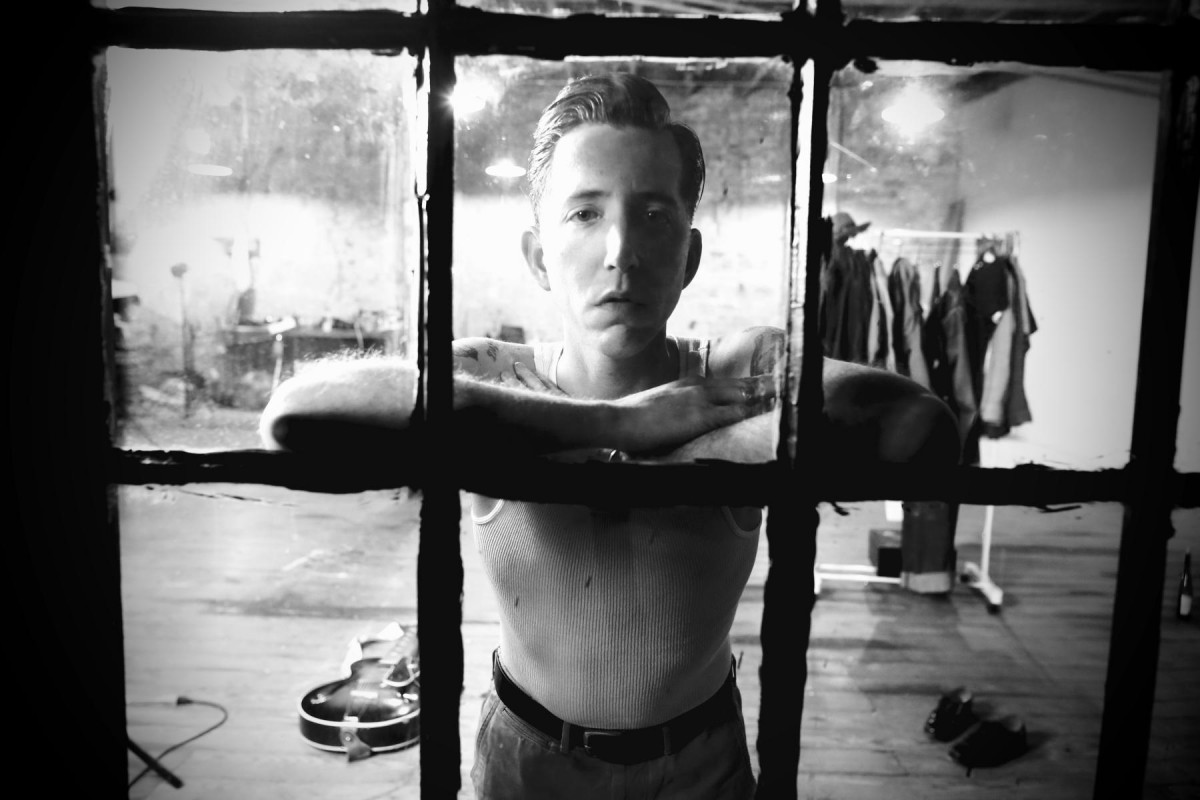This is the one where the style of music recedes, as the foreground swells with evidence of Pokey’s observations of pain, joy, confusion. This one is where his artistic character shines. And where we see that artistic blood on the page, unvarnished and raw. MANIC REVELATIONS is the second coming of an artist who, over the past decade, has taken the workaday approach to building a body of work, and a worldwide fanbase. After a decade of struggle, it’s all paid off here. And it’s all riding on this album.
“A lot of things haven’t gone my way,” says Pokey. “I’ve haven’t become successful in spite of the things I had to overcome, rather, I’ve become successful because of what I had to overcome. It’s all made me better. And now there’s no going back.”
True to this statement, there are no lookback songs on MANIC REVELATIONS. This album is all about looking outward, looking forward - and we’ve never seen Pokey’s observational craft in a more stark relief. This hasn’t happened by chance. Artists who write from real life experience have no choice but to change themselves if they want to progress their art. With this in mind, Pokey has been hard at work pushing out the corners on himself.
“This album is about confronting yourself,” explains Pokey. “It’s about confronting your city, its relation with the world, and all its people. In the pursuit of making myself a better person, I create better art. Which hopefully makes the world a better place. Still, at times, I need to get away from it all.”
III. THE MUSIC
MANIC REVELATIONS kicks off with a cold open.
A crack of the snare and an insistent upright bass riff are the clarion call. From there, “Riot in the Streets” throttles up, ripping MANIC REVELATIONS wide open.
Halfway through the song you realize this story—where the rich and the poor alike line up to riot, or peacefully protest, while TV news anchors somewhat unreliably narrate the scene—is reported judiciously; he isn’t swaying the listener to one side or the other.
“Look, I’m an opinionated person,” says Pokey. “But that doesn’t extend itself into my writing. I’ve always been an observer. Telling a story isn’t always about having an opinion. It’s about painting a picture.”
In “Must Be A Reason,” people fall into and out of—and back into—love. On this song, and all over the album, he shoves in the crying wherever he can. Not because he thinks it’s entertaining. Because he’s lived it. And he knows that others know this sadness, too. On an album filled with personal and cultural pressure release valves, this tune is the one about the politics of romance.
“In a relationship,” says Pokey, “you run out of stories to tell. You run out of excuses. You run out of ways to get her back. Sometimes you’re on the precipice—she’s getting ready to leave. But I always remember someone saying: the only way to stay together is to fucking stay together.”
“Bad Dreams” illustrates a classic “wherever you go, there you are” story: lovers leave home to travel the world. They want to escape the friction at home. Some call this “pulling a geographic.” When they return, it’s clear that changing location didn’t help; the real problem is still staring them in the mirror.
“You realize you’re coming home,” Pokey explains, “to the same problems that caused you to go away in the first place. It’s not the city. You can’t get away from yourself.”
Now, if you listen to only one of these manic revelations, it should be “Silent Movie.” He wrote this one in 15 minutes. 15 minutes! That decade of looking and writing and traveling and playing culminates in this song. And truth be told, we’ve never heard this kind of song from this guy.
“Silent Movie” is on par with the best social narratives of Nilsson, Campbell, Kristofferson. As a lone guitar line drags the song along, Pokey pulls focus on a kid adorned in headphones on a Chicago El train. He may be on his way to school, or he may be on his way home. Regardless of the position of the sun in the sky, the world outside the windows is too much for this kid to take in. “Cover your ears and watch the world go by,” Pokey sings, “That’s how we survive.” A clarinet drizzles a saddening pattern over the entire scene, and we begin to wonder: where are we headed if a whole generation is growing up feeling this way? Shoving in the sadness. The song goes on: “Growing up is a scam / The truth is a lie / Better off staying a child / Till the day you die / Stay inside your mind / Or go outside and find a place to hide.”
“The song is about shutting out the noise,” says Pokey. “Coming up with your own soundtrack, in this country where there’s more questions than answers, it seems.”
Never feeling satisfied. Always dressed in blue. Diving into the darkness. Turning the table upside down. Wherever you go, there you are. Fucking stay together. Better off staying a child. This album is an epoch for Pokey LaFarge. You feel it all over these 10 revelations.
“Now I’ve found my groove,” says Pokey. “I don’t have to overcompensate anymore. Nobody looks and sounds like me. And I’m OK with that.”
END
Price
- $27-$381






COMMENTS